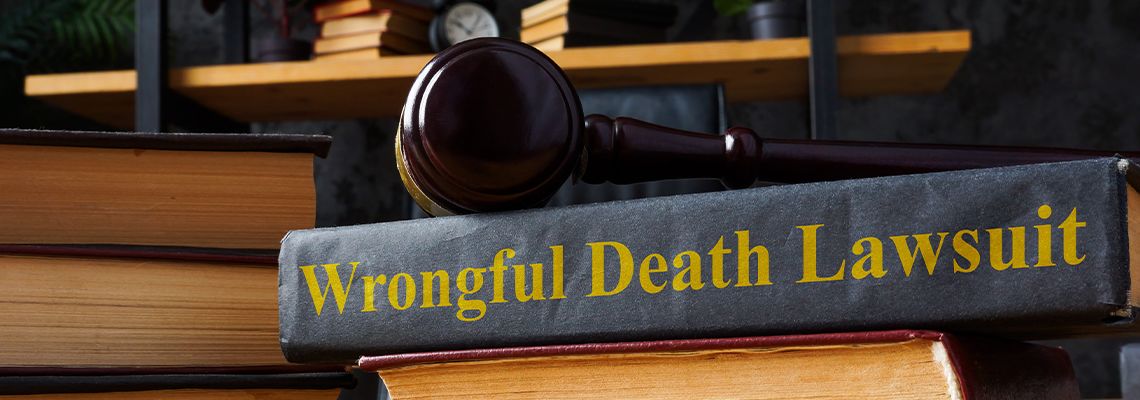The sudden loss of a loved one leaves families in Louisiana grieving and wondering how they’ll cover household bills. Wrongful death damages range from future paychecks to bedtime stories never told, and each element carries its own proof requirements within Louisiana’s civil code.

What Are the Deadlines for Filing a Wrongful Death Claim?
Losing a loved one due to another's negligence or misconduct is devastating, and pursuing justice can feel overwhelming. Understanding the legal deadlines for filing a wrongful death claim is crucial, as missing these deadlines can bar you from seeking compensation.
Corrington Law Firm in New Orleans, Louisiana, is dedicated to helping families manage these challenges and make sure that their rights are preserved under the law.
Wrongful death cases involve complicated legal processes, including strict filing deadlines known as statutes of limitations. These timelines vary depending on the state and the circumstances of the case. To better understand how these deadlines affect your case, read on for information about filing wrongful death claims and preserving your right to seek justice.
The Importance of Statutes of Limitations
Statutes of limitations are deadlines set by law that dictate how long you have to file a lawsuit. In wrongful death cases, these deadlines are designed to make sure that evidence is fresh and the legal process is efficient. Missing the statute of limitations can result in losing your right to file a claim entirely.
Each state has its own statutes for wrongful death claims, which can range from one to several years after the date of death. Factors such as the discovery of harm or exceptions for certain claimants can impact these timelines. Understanding these nuances is key to protecting your case.
As we examine the details of filing deadlines, let’s look at how they can differ based on jurisdiction and other variables.
Variations in Filing Deadlines by State
Wrongful death statutes of limitations differ from state to state. While most states provide two years to file, some have shorter or longer timeframes. Additionally, exceptions may apply in specific circumstances.
For example:
Discovery rule: Some states extend the deadline if the cause of death wasn't immediately apparent.
Minor claimants: When the claimant is a minor, the clock may not start until they reach adulthood.
Government entities: Claims involving public entities often have shorter filing deadlines, sometimes as short as six months.
Understanding your state's specific laws makes sure that you file within the appropriate timeframe. Next, we’ll explore who is eligible to file a claim within these deadlines.
Who Can File a Wrongful Death Claim?
Not everyone affected by a wrongful death is eligible to file a claim. Typically, the right to file is reserved for close family members or representatives of the deceased's estate. These rules vary by state, but common eligible parties include:
Immediate family members: Spouses, children, or parents of the deceased.
Estate representatives: Executors or administrators acting on behalf of the deceased’s estate.
Financial dependents: In some cases, individuals financially reliant on the deceased may file.
Understanding who is eligible is vital, as only those recognized by the law can pursue a claim. With eligibility established, let’s turn to how exceptions may influence filing deadlines.
Exceptions to Statutes of Limitations
Certain circumstances can alter or pause the statute of limitations. These exceptions, while uncommon, are critical to consider in wrongful death cases.
Some scenarios where exceptions may apply include:
Fraud or concealment: If responsible parties hide evidence, the timeline may be extended.
Incapacitation: Claimants unable to act due to physical or mental conditions might receive extensions.
Military service: Active-duty service members may have filing deadlines delayed.
Such exceptions highlight the importance of consulting legal guidance to make sure that deadlines aren’t missed. This brings us to understanding how courts determine the starting point for the filing period.
Determining When the Clock Starts
In most wrongful death cases, the statute of limitations begins on the date of the decedent's death. However, determining this "start date" isn't always straightforward.
For instance:
In medical malpractice-related deaths, the timeline may start when negligence is discovered.
If the cause of death is unclear, investigations might delay the start date.
Court interpretations of the "discovery rule" can vary, impacting timelines.
These nuances emphasize the need for timely action and legal knowledge. Next, let’s explore what happens if you miss the deadline for filing.
Consequences of Missing the Filing Deadline
Failing to file within the statute of limitations can have serious consequences. In most cases, courts will dismiss your claim, leaving you without recourse to seek damages.
Exceptions are rare and typically require strong justification. Even valid claims may face challenges if evidence degrades over time. Acting promptly makes sure that your rights are protected and your case is as strong as possible.
As we consider the risks of delay, it’s also important to explore how timely filing impacts the damages you can recover.
Damages Recoverable in Wrongful Death Claims
Filing within the statute of limitations is essential for securing compensation for damages. Wrongful death claims typically cover both economic and non-economic losses suffered by the family or estate.
Damages often include:
Economic losses: Funeral expenses, medical bills, and lost income.
Non-economic losses: Pain and suffering, emotional distress, and loss of companionship.
Punitive damages: In cases of gross negligence or intentional harm.
Understanding the types of damages recoverable can help families pursue justice and financial stability after a loss. Let’s explore the importance of early action in greater detail.
The Importance of Acting Quickly
Timely filing not only protects your right to sue but also strengthens your case. Evidence is fresher, witnesses are more reliable, and opposing arguments are easier to counter when action is taken promptly.
Early action provides:
Thorough evidence collection: Securing medical records, accident reports, and witness statements.
Strategic case development: Building a strong claim with time to address complications.
Reduced emotional burden: Avoiding last-minute stress by filing well within the deadline.
These benefits illustrate why time is of the essence in wrongful death cases. In the following section, we’ll address common misconceptions about statutes of limitations.
Debunking Common Misconceptions
Many people misunderstand how wrongful death statutes of limitations work, leading to costly mistakes. These misconceptions can jeopardize otherwise valid claims.
Common myths include:
"I can file whenever I'm ready." Statutes are strict, and delays often lead to dismissal.
"The timeline doesn’t start until I’m emotionally ready." Filing timelines are legally determined, not based on personal readiness.
"My case is strong, so deadlines don’t matter." Even strong claims are barred if not filed on time.
Understanding the facts makes sure that families take the necessary steps to preserve their rights. It’s also important to understand how filing deadlines can influence the availability of evidence.
How Filing Deadlines Impact Evidence
The timing of your wrongful death claim significantly influences the availability and quality of evidence. Filing promptly makes sure that crucial evidence, such as medical records, eyewitness accounts, or expert testimony, is preserved and readily accessible. Delaying action can cause evidence to deteriorate or become inaccessible, weakening your claim.
For example, medical records may be lost or destroyed if requests aren’t made within retention periods. Similarly, witnesses’ memories may fade, or they may become unavailable over time. Taking swift action makes sure that your legal professionals have the tools necessary to build a compelling case.
As deadlines impact evidence preservation, you may also have additional questions about how statutes of limitations and filing processes work. Let’s address these in an FAQ section.
Frequently Asked Questions about Wrongful Death Filing Deadlines
When managing wrongful death claims, families often encounter uncertainties about filing deadlines and related procedures. Here are answers to some common questions:
How are wrongful death statutes of limitations determined?
Statutes of limitations are set by state law and vary depending on the jurisdiction. In general, the clock starts ticking on the date of death, but exceptions like the discovery rule can apply in some cases.
What happens if I miss the filing deadline?
In most cases, missing the deadline will result in your claim being dismissed, and you’ll lose the right to seek compensation. Only rare exceptions, like fraud or incapacity, might allow for extensions.
Does the statute of limitations differ for minors?
Yes, in many states, the timeline may be paused until a minor claimant reaches adulthood, giving them more time to file.
Can I file a wrongful death claim years after the death if new evidence emerges?
It depends on your state’s laws. While some states allow extensions under the discovery rule, others adhere strictly to the original deadline.
How do government entities affect the filing deadline?
If your claim involves a government entity, you’ll likely face shorter deadlines and additional procedural requirements. These cases often require prompt action.
These questions emphasize the importance of understanding the filing process and acting within the legal timeframe to secure justice for your loved one. Now, let’s summarize how acting within legal deadlines impacts your claim.
Contact Corrington Law Firm Today
Protecting your rights after a wrongful death requires understanding and adhering to legal deadlines. Attorney Corrington at Corrington Law Firm is committed to helping families meet these critical timelines and pursue justice for their losses. Contact Corrington Law Firm in New Orleans, Louisiana, today for skilled guidance tailored to your case.
RECENT POSTS
Losing a loved one to someone else’s negligence leaves families grieving and facing new bills all at once. Because Louisiana’s civil code limits who may sue and which losses qualify, early legal guidance keeps cases focused on damages the court can actually award.



